The Rise and Fall of a Honduran Narco-Regime Is an American Story
For more than a decade, Washington enabled the ascent and corrupt rule of Juan Orlando Hernández.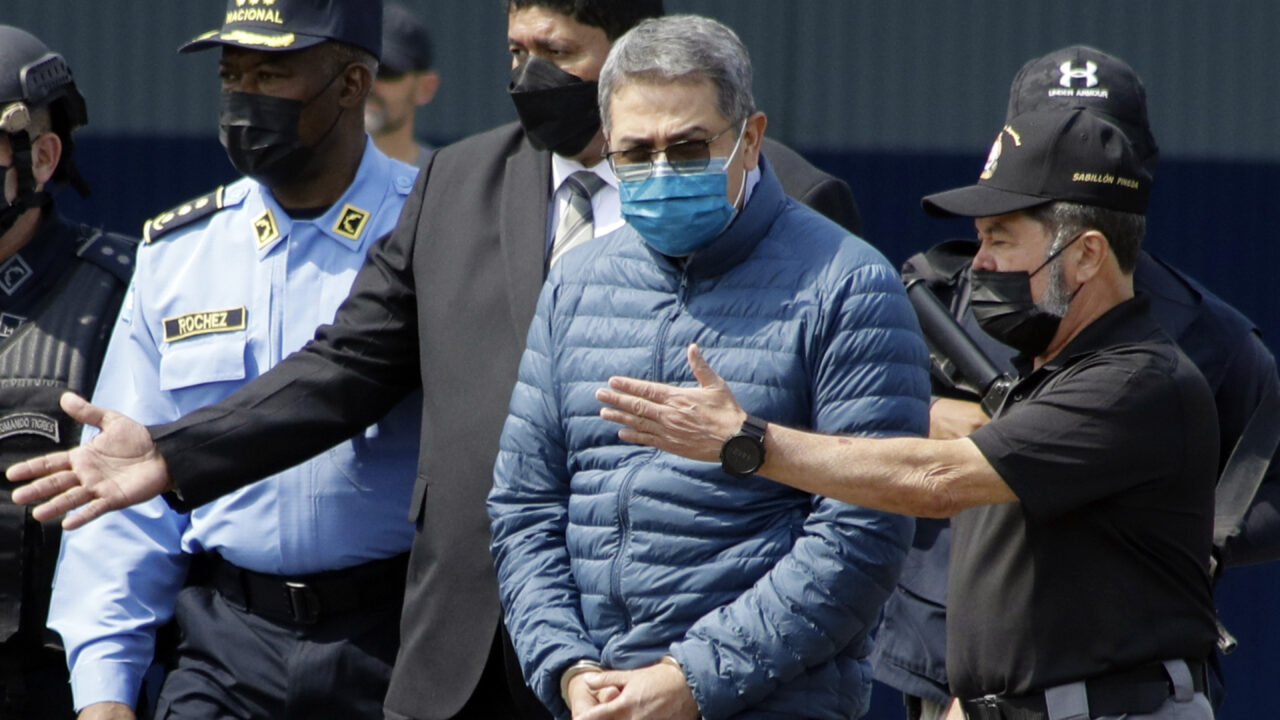 Former Honduran President Juan Orlando Hernandez, second from right, is taken in handcuffs to a waiting aircraft as he is extradited to the United States, at an Air Force base in Tegucigalpa, Honduras, April 21, 2022. Hernández has been convicted in New York, Friday, March 8, of charges that he conspired with drug traffickers, his military and police to enable tons of cocaine to make it unhindered into the United States. (AP Photo/Elmer Martinez, File)
Former Honduran President Juan Orlando Hernandez, second from right, is taken in handcuffs to a waiting aircraft as he is extradited to the United States, at an Air Force base in Tegucigalpa, Honduras, April 21, 2022. Hernández has been convicted in New York, Friday, March 8, of charges that he conspired with drug traffickers, his military and police to enable tons of cocaine to make it unhindered into the United States. (AP Photo/Elmer Martinez, File)
NEW YORK — On Friday, Juan Orlando Hernández, the ex-president of Honduras and a longtime U.S. ally, was convicted in a New York federal courtroom on three counts of narcotics trafficking and related weapons offenses. True to form, the mainstream American media’s coverage of the verdict was sketchy, limited to brief reports that barely mentioned his significant connections to the U.S. government. By hiding America’s long-running complicity in Hernández’s crimes, the media completely missed the most shocking element of the story.
If the U.S. media had listened to the scores of enraged Hondurans and Honduran-Americans who jammed the spectator sections of the courtroom and noisily demonstrated outside throughout the trial, they would have understood that, in the words of one protester, “the gringos were protecting JOH.” (In Honduras, Hernández is known by his initials.)
U.S. complicity in Hernández’s crimes dates to June 2009, when Hillary Clinton’s State Department recognized an illegal military coup against the elected Honduran president, Manuel Zelaya. In her compelling book, ”The Long Honduran Night,” the American academic Dana Frank describes that the Obama administration decided to validate “the first successful Latin American military coup in [two] decades” because doing otherwise would have legally required the U.S. “to stop almost all foreign aid to Honduras immediately.” Not only did that aid continue, but the State Department would tacitly endorse the illegal maneuvering behind the election of Hernández in 2013 and his reelection in 2017.
“Without U.S. support for his military, the ongoing American legitimation of his rule, and the money he was getting from the narcotics traffickers, he could not have survived as president for a single day.”
According to Frank, the U.S. government must have been aware from the very start of Hernández’s connections to drug traffickers. “The U.S. has immense monitoring resources, including sophisticated defense intelligence systems,” she tells Truthdig. “It’s preposterous to think that the U.S. didn’t know about him from Day One. They chose to work with him because he served U.S. military and geo-strategic interests, including maintaining the big American military base in Honduras.”
The permanent U.S. base at Soto Cano, in south central Honduras, stations between 1,200 and 1,500 American Air Force and Army personnel at any one time. Hernández could not have stayed in power for eight years without continued U.S. support, Frank says.
“Millions of U.S. aid dollars were pouring into the Honduran police and military — for training, helicopters, intelligence capabilities,” she explained. “American diplomats were publicly celebrating him and other members of his corrupt circle. Without U.S. support for his military, the ongoing American legitimation of his rule, and the money he was getting from the narcotics traffickers, he could not have survived as president for a single day.”
So far, the mainstream American press has either not reported the verdict, or chosen to mostly ignore the U.S. government complicity angle. In The New York Times article, the U.S. role received not a single mention. The Washington Post and National Public Radio offered only the briefest of hints. NPR, for example, fleetingly observed that “both the Obama and Trump administrations saw Hernández as a reliable ally.” So far, CNN and the PBS NewsHour have not reported on the trial or verdict.
Fortunately for justice, the U.S. Attorney for the Southern District of New York ignored the U.S. State and Defense Departments preferences, and ordered Hernández’s extradition and trial in 2022. During the two-week trial — centered by a charge that Hernández trafficked 500 tons of cocaine to the U.S. — Hondurans filled the 85 spectator seats inside Judge P. Kevin Castel’s wood-paneled courtroom, and an overflow crowd watched on closed circuit TV from another room. Outside, on Pearl Street, dozens more held up posters, placards and photographs of their countrymen who had been murdered by the narcotics smuggling network. When the jury’s verdict was announced on the afternoon of March 8, they erupted in cheers and sang the Honduran national anthem. Among them was Jorge Manríquez, a former Honduran government employee in his fifties who now lives in the U.S. “My mother always said that the only thing you can do with a rabid dog is to kill it,” Manríquez told me upon hearing the verdict.
Manríquez’s personal experience illustrates how the narcotics trade can injure an entire nation. Hernández used the millions he got from partnering with the drug smugglers to win two elections, then imposed a number of unpopular policies, including privatizing government agencies such as Manríquez’s workplace. “They said we could no longer have a union to protect our rights,” he remembered. “I fought back, and they fired me.”
Widespread violence and corruption contributed to the exodus of Hondurans northward toward safety.
As corruption spread through the Honduran police and army, the narco network’s lower level members allied with gangs to establish widespread extortion rackets. Anyone who visited Honduras during Hernández’s rule quickly learned that every taxi and bus driver had to make weekly payments to the gangs or be murdered.
Widespread violence and corruption contributed to the exodus of Hondurans northward toward safety. Many of the migrant refugee caravans that dominated U.S. headlines starting in 2017 mostly originated in northern Honduras. In 2021, Hondurans constituted the second-largest single nationality among the 1.6 million “encounters” that U.S. authorities had with desperate people arriving at our southern border.
The big mystery is why Juan Orlando Hernández did not flee the country once he could see the writing on the wall. Two ex-presidents from neighboring El Salvador had also faced accusations of corruption, but chose to escape; both now live in Nicaraguan exile under the protection of the Ortega/Murillo regime. After Hernández’s candidate decisively lost the November 2021 presidential election, however, he chose to remain in Honduras. Why?
One theory is that Hernández had gotten so smug and arrogant under the protection of three U.S. administrations, he figured a different branch of the American government would never come after him.
The U.S. media will have a chance to redeem itself when Hernández is sentenced on June 26. He faces a possible life term and a mandatory minimum sentence of 40 years. Instead of narrowly reporting Judge Castel’s decision, the press should listen to those Hondurans outside the courtroom who will be holding vigil and demanding justice. The media could also try interviewing people in Honduras, where the sentencing will also be celebrated widely. Arguably most important, they should approach sources at the U.S. State and Defense departments and ask why our government protected a criminal president for years, and to name those American officials to blame for the immoral policy.
The U.S. media has an obligation to remember and report that Hernández spread misery in both countries. “JOH not only turned my country into a narco state,” said Manríquez outside the courthouse, “he also sent tons of poison up to the United States.”
Your support matters…Independent journalism is under threat and overshadowed by heavily funded mainstream media.
You can help level the playing field. Become a member.
Your tax-deductible contribution keeps us digging beneath the headlines to give you thought-provoking, investigative reporting and analysis that unearths what's really happening- without compromise.
Give today to support our courageous, independent journalists.
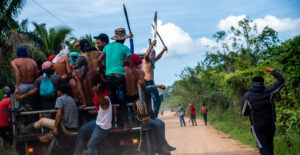
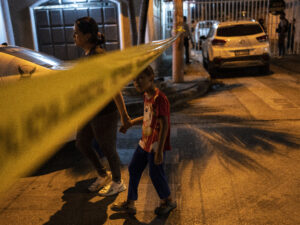
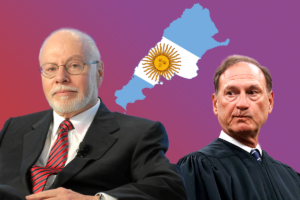
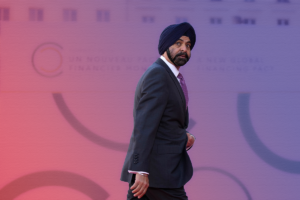

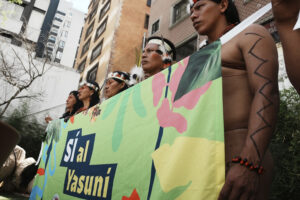
You need to be a supporter to comment.
There are currently no responses to this article.
Be the first to respond.